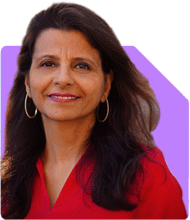34-year-old NRI seeks retirement advice with monthly income and investments
Ramalingam Kalirajan |9712 Answers |Ask -Follow
Mutual Funds, Financial Planning Expert - Answered on Jul 30, 2024
He has an MBA in finance from the University of Madras and is a certified financial planner.
He is the director and chief financial planner at Holistic Investment, a Chennai-based firm that offers financial planning and wealth management advice.... more

I am a 34 year old NRI currently working in a GCC country. I have a monthly fixed income of inr 2.5 Lakh. I have started 15000 monthly SIP this year for next 5 years and planning to reinvest the returns again in SIP for another 5 years. I have 2 ancestral properties in India worth 50 lakh and 80 lakh (with home). I also have ICICI Gift plan with a 2.4 lakh p.a for 7 years and guaranteed income of inr 1.4 lakh after 10th year for 15 years and inr 16.8 lakh lump sum payout after 15 years. I also have a term life insurance of Rs. 1.5 crore. I am having 2 children (girls) below 6 years old. I have put inr 5 lakh FD for 10 years for children education purpose. How can I retire at the age of 55 with a stable financial backup post retirement.
You have a monthly fixed income of Rs 2.5 lakh.
You have started a Rs 15,000 monthly SIP for five years.
You plan to reinvest the returns for another five years.
You have two ancestral properties worth Rs 50 lakh and Rs 80 lakh.
You have an ICICI Gift Plan with a yearly premium of Rs 2.4 lakh for seven years.
You have a guaranteed income of Rs 1.4 lakh after the tenth year for fifteen years.
You will receive a lump sum payout of Rs 16.8 lakh after fifteen years.
You have a term life insurance of Rs 1.5 crore.
You have two daughters below six years old.
You have a Rs 5 lakh FD for ten years for their education.
Investment Strategy
SIP Investments
Continue the Rs 15,000 monthly SIP.
Reinvest the returns for another five years.
Consider diversifying into equity and hybrid funds for better returns.
ICICI Gift Plan
Evaluate the benefits and returns.
Consider the plan’s impact on overall financial goals.
If returns are lower than expected, consider other investment options.
FD for Children's Education
FDs provide safety but lower returns.
Consider shifting part of it to debt or hybrid funds.
This can offer better returns with moderate risk.
Additional Investments
Mutual Funds
Increase SIP amount if possible.
Diversify across large, mid, and small-cap funds.
Add some debt funds for stability.
Children's Education
Consider investing in child-specific mutual funds.
Use SIPs for systematic investments.
Retirement Corpus
Aim to build a retirement corpus by age 55.
Invest in a mix of equity, debt, and hybrid funds.
Regularly review and adjust your portfolio.
Insurance and Safety Nets
Term Life Insurance
Your Rs 1.5 crore term insurance is good.
Ensure it covers your family’s financial needs.
Health Insurance
Get comprehensive health insurance.
Cover your family adequately.
Estate Planning
Ancestral Properties
Evaluate the potential rental income.
Consider the long-term value of these properties.
Actively Managed Funds vs Index Funds
Disadvantages of Index Funds
Passive management limits growth potential.
They may underperform in volatile markets.
Benefits of Actively Managed Funds
Potential for higher returns.
Experienced fund managers adapt to market changes.
Regular Funds vs Direct Funds
Disadvantages of Direct Funds
Lack of professional guidance.
Time-consuming to manage independently.
Benefits of Regular Funds
Professional management by a Certified Financial Planner.
Easier to track and manage investments.
Final Insights
Focus on building a diversified portfolio.
Regularly review and adjust your investments.
Ensure adequate insurance coverage.
Plan for your children’s education systematically.
Stay disciplined and invest with a long-term perspective.
Best Regards,
K. Ramalingam, MBA, CFP,
Chief Financial Planner,
www.holisticinvestment.in
You may like to see similar questions and answers below
Ramalingam Kalirajan |9712 Answers |Ask -Follow
Mutual Funds, Financial Planning Expert - Answered on Jul 31, 2024
Ramalingam Kalirajan |9712 Answers |Ask -Follow
Mutual Funds, Financial Planning Expert - Answered on Sep 30, 2024
Komal Jethmalani |407 Answers |Ask -Follow
Dietician, Diabetes Expert - Answered on Jul 13, 2025
Komal Jethmalani |407 Answers |Ask -Follow
Dietician, Diabetes Expert - Answered on Jul 13, 2025
Radheshyam Zanwar |5284 Answers |Ask -Follow
MHT-CET, IIT-JEE, NEET-UG Expert - Answered on Jul 13, 2025
Radheshyam Zanwar |5284 Answers |Ask -Follow
MHT-CET, IIT-JEE, NEET-UG Expert - Answered on Jul 13, 2025
Radheshyam Zanwar |5284 Answers |Ask -Follow
MHT-CET, IIT-JEE, NEET-UG Expert - Answered on Jul 13, 2025
Radheshyam Zanwar |5284 Answers |Ask -Follow
MHT-CET, IIT-JEE, NEET-UG Expert - Answered on Jul 13, 2025
Radheshyam Zanwar |5284 Answers |Ask -Follow
MHT-CET, IIT-JEE, NEET-UG Expert - Answered on Jul 13, 2025
Radheshyam Zanwar |5284 Answers |Ask -Follow
MHT-CET, IIT-JEE, NEET-UG Expert - Answered on Jul 13, 2025
Radheshyam Zanwar |5284 Answers |Ask -Follow
MHT-CET, IIT-JEE, NEET-UG Expert - Answered on Jul 13, 2025
Radheshyam Zanwar |5284 Answers |Ask -Follow
MHT-CET, IIT-JEE, NEET-UG Expert - Answered on Jul 13, 2025



















